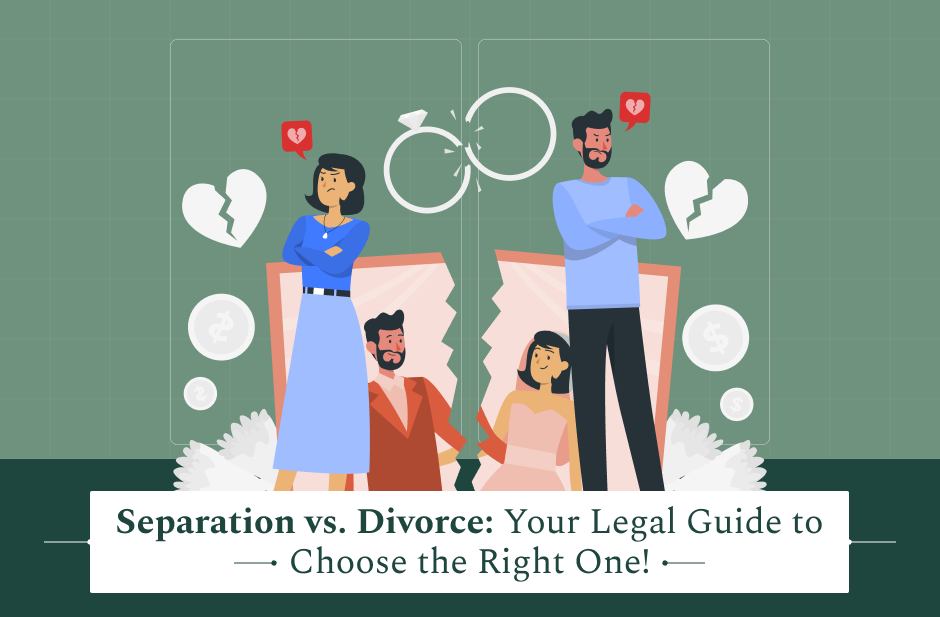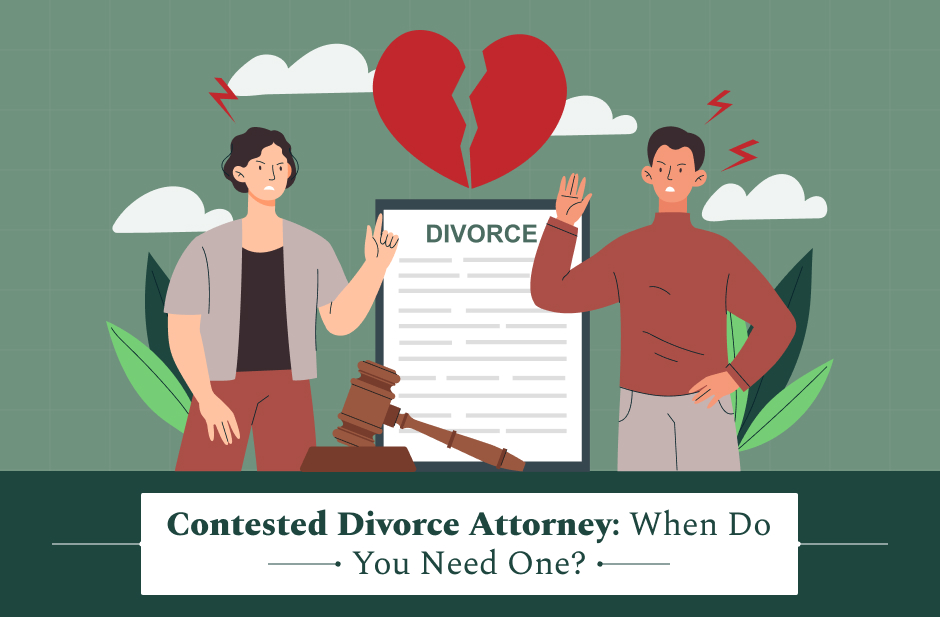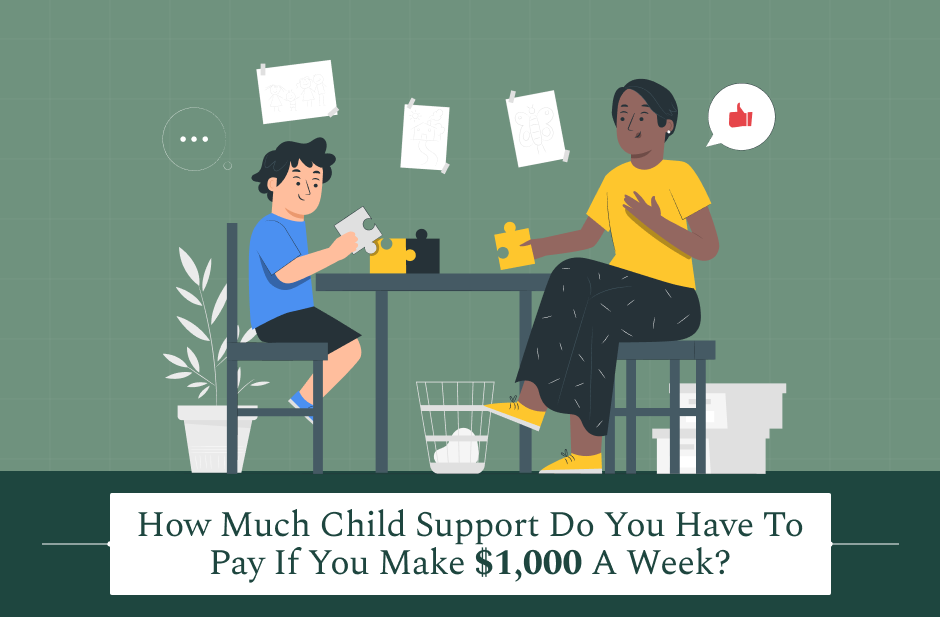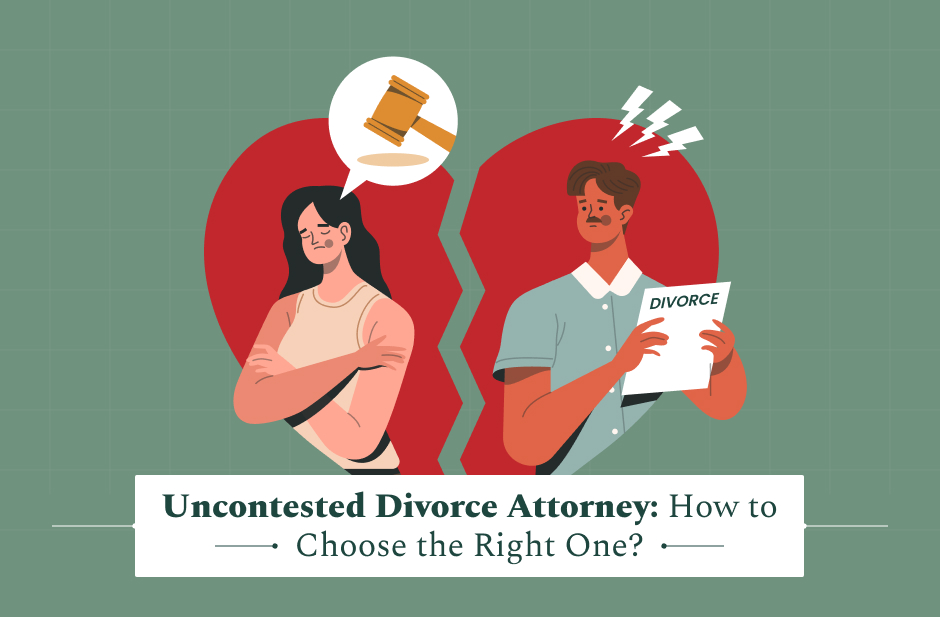“Should I get a divorce? But what if I regret it?” If this sounds familiar—either for you or someone close—you’re not alone. And the real breakthrough comes when you grasp the difference between separation vs divorce.
Seriously, it matters.
Yep, they’re not the same thing. One gives you certain powers the other doesn’t. But what does that actually mean? And can choosing the right one tilt things in your favor?
That’s exactly what I’ll dig into today. So, if divorce is on your mind, stick with me. Read all the way through and—hopefully—you’ll be glad you did.
Separation vs. Divorce: Are They Really Different?
People fall in love, they get married, and they’re full of hope. But sometimes, life doesn’t go as planned. So then comes the tough decision, and “divorce” usually follows.
But here’s the twist: lots of folks regret jumping straight to divorce. Side note: that’s where picking between separation and divorce gets important.
We toss these terms around like they’re the same thing, but they’re not. And, honestly? Most people have no clue. Let’s clear it up.
What is a Separation?
Legal separation means you live apart, but… you’re still married. Picture it like a timeout. The court draws financial lines—who pays what, who’s caring for the kids, even who holds the mortgage—but the marriage stays intact.
People pick this route for all sorts of reasons:
- Religious beliefs.
- Health insurance perks.
- Just because they’re not ready to cut ties.
And hey, if things work out, you don’t have to divorce—you can reconcile. Or later, you can still go ahead with divorce if that’s where you land.
What is a Divorce?
Okay, divorce—we all know this one. When the court says, “You’re single again.” Boom. It’s final. No going back (unless you remarry your ex—but come on, that’s a whole other story).
It’s the legal end of your marriage. You split stuff. Some of them include:
- Assets.
- Kids.
- Alimony.
Some places even make you wait or “cool down” before you can file. Unlike annulment, which says the marriage never existed, divorce says it existed and now it doesn’t.
Usually, people go for it over stampede-level issues: cheating, abuse, or “we just can’t fix this.” Basically, it’s closure, plain and simple.
Separation vs. Divorce: What are the Differences?
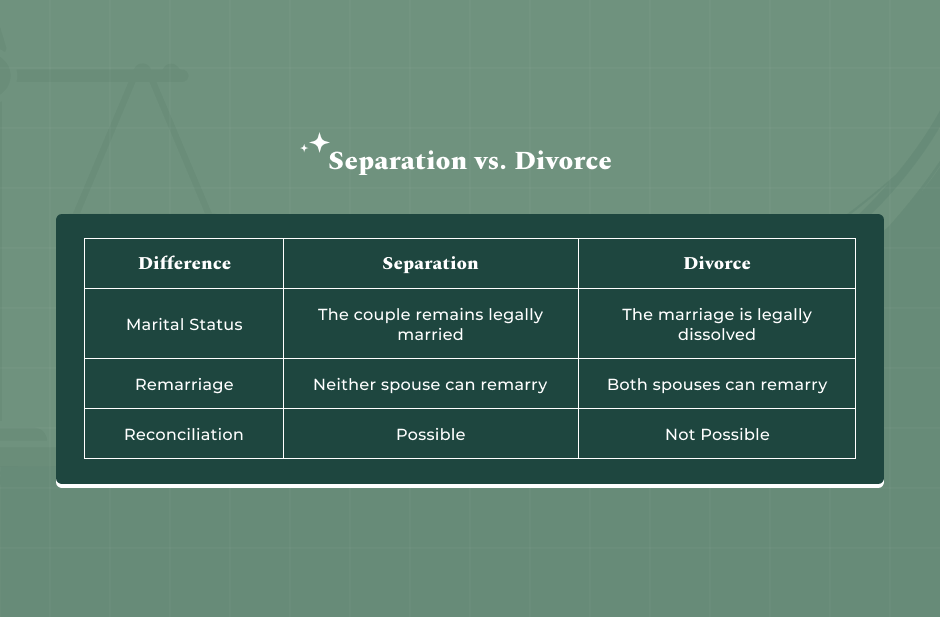
So we know they’re not the same. Let’s lay out the big differences side by side:
- Legal status: Separation keeps you married. You still might have some say in your partner’s life—healthcare, inheritances, that kind of thing. Divorce? Nope. Completely over.
- Money ties: Separated partners often keep things shared—like benefits or taxes—though they can set child/spousal support rules. Divorce severs those ties and forces a clean split of money and debts.
- Remarriage: Can’t do it if you’re still separated. Divorce? That’s your green light to move on legally.
- Emotional flexibility: Separation is like a trial run. Gives space, but it’s reversible. Divorce is final—period. Only way back is re-marrying.
- Religion/culture: Some faiths forbid divorce—or really discourage it. Separation is more acceptable. Divorce? Big no-no, depending on your background.
When Should You Get a Legal Separation?
Here’s when separation might make sense:
- You’re torn: Not ready to leave the marriage, but need space to think.
- Money matters: Wants to keep shared benefits—insurance, taxes—while untangling finances slowly.
- Faith values: Your beliefs frown on divorce, but separation is allowed.
- Kids need stability: It gives them structure without the shock of divorce.
- Hoping to reconcile: Gives time apart to work on things without ending the legal bond.
When Should You Get a Divorce?
And here’s when divorce might be the better choice:
- Irreparable breakup: Therapy’s been a bust; no future together.
- Safety issues: Abuse—emotional, physical, whatever—makes staying too risky.
- Wanting to move on completely: New relationship? Want to remarry? Divorce is your ticket.
- Financial clarity: You want a clean break—divorce finalizes it legally and financially.
- Emotionally ready: Divorce isn’t easy. You have to feel prepared to close the chapter.
Separation vs. Divorce: Things to Consider Before Choosing
Deciding between these isn’t easy. And lots of people regret it—whether they separate or divorce—if they don’t fully think it through.
Check this out: A 2021 Avvo survey says about 27% of divorced folks wished they’d tried harder to save the marriage, while others felt they rushed in without seeing the full picture. Meanwhile, separation sometimes leaves people stuck, emotionally spinning without closure.
So, here are the big things to think about:
- Emotional readiness: Are you okay with “pausing” your marriage? Or do you need a definitive end?
- Kids first: Emotional stability? Or clarity and finality? Each path affects children differently.
- Money stuff: Separation keeps some entanglements. Divorce hits “reset,” but usually costs more to untie legally.
- Chance to get back together: Separation lets you try fixing things. Divorce closes the door.
- Talk it out: Seriously, get legal counsel or therapy. You’ll want guidance, as regrets often stem from not exploring both options.
Take your time. Weigh the emotional, legal, financial impact. Understand the regret risk—that’s how you make the right call.
Your Legal Guide: Who Can Legally Help You When You Cannot Decide Between Separation Vs Divorce?
When confronted with the difficult issue of choosing between a separation and a divorce, several legal experts and resources can be invaluable in providing you with advice and support.
1. Family Law Attorneys
One such expert is a family law lawyer who is very knowledgeable about the relevant regulations and can give you the legal consequences of both alternatives in exact terms.
They can analyze your particular case and inform you about the most appropriate course of action, taking into account issues of child custody, property division, and spousal support.
If you decide to go through a separation or a divorce, a lawyer can protect your interests, help you with the legal formalities, and fight for your rights in court, if necessary.
2. Mediation Services
On the one hand, mediation is where a neutral third person, a mediator, assists the two spouses to have a conversation and come up with a mutually agreed-upon solution in respect of such issues as child custody, finances, and property.
Instead of having a bitter and challenging experience in court, with its consequent waste of time, money, and energy, mediation can be less adversarial and more cooperative in nature.
Thus, a mediator can aid in the construction of a separation agreement that reflects the conditions of the separation to be submitted, if necessary, to the court for approval.
3. Pre-Divorce Or Separation Counseling
Finally, it is counseling that will give a person plenty of opportunities and resources to understand where she/he stand in marital difficulties and figure out if it is still worth keeping the relationship or not, by managing anxiety, stress, and other emotions.
Therapists have the ability to work with couples to upgrade their communication, solve their conflicts in a positive manner, and become aware of each other’s needs and viewpoints.
Through therapy, it is possible to find out if the marriage can be saved by means of reconciliation or if separation or divorce is the correct decision.
Read Also:








